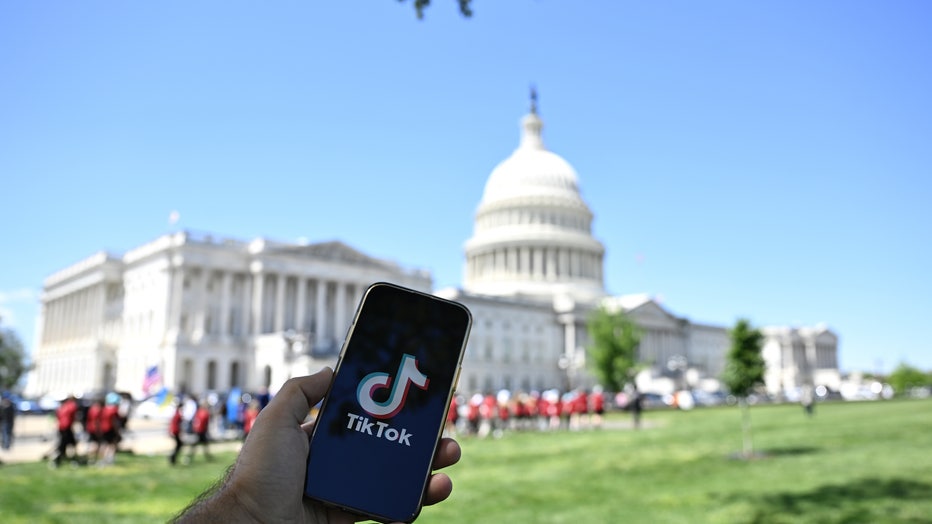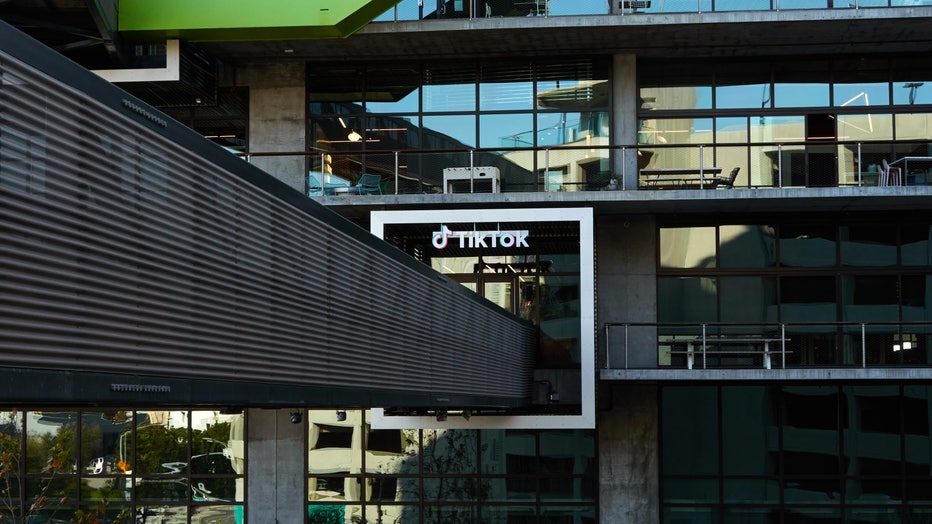TikTok: What to know about the app's possible ban in the U.S.
PHOENIX - U.S. lawmakers have approved legislation banning TikTok if its parent company doesn’t sell the popular social media platform.
The legislation, which was included in a package of bills that would send aid to Ukraine and Israel, was signed into law by President Joe Biden on April 24.
Here's what to know about TikTok, and why it is more controversial than other social media platforms.
What's TikTok?
The Encyclopedia Britannica describes TikTok as a "social media platform designed for creating, editing, and sharing short videos between 15 seconds and three minutes in length." It also describes it as a separate version of Douyin, a Chinese app that has the same basic functionality but includes content of interest to the Chinese public.
On ByteDance's website, both Douyin and TikTok are listed as among the company's list of products. Both apps also use the same icon.
TikTok says ByteDance was founded by Chinese entrepreneurs and is currently a privately held global company that's not controlled by any government or state entity.
How many people use TikTok?
The Associated Press stated that there are about 170 million TikTok users in the U.S.
Globally, figures from Statista show the app could have around 900 million active users worldwide in 2024.
Why is TikTok so controversial?
Reports from the Associated Press state that both the FBI and the Federal Communications Commission have warned that ByteDance could share TikTok user data, such as browsing history, location and biometric identifiers, with China’s authoritarian government.
Since 2017, there has been a Chinese law in place that requires companies to give the government any personal data relevant to the country’s national security. However, there is no evidence that TikTok has turned over any such data, and opponents of a ban say there are other ways the Chinese communist government could get information on Americans, such as data brokers that sell or rent personal information.
Some lawmakers have also expressed concerns that China could potentially direct or influence ByteDance to suppress or boost TikTok content that is favorable to its interests.
Are there restrictions or bans already imposed on TikTok in the U.S.?
Data from Govtech.com shows that at least 37 states have taken some kind of action against the app since 2020.
One of the more notable efforts to ban TikTok came from Montana, where lawmakers approved a complete ban of the app. That ban, however, was blocked by a judge in November 2023, a month before it was supposed to take effect. The judge said the ban "oversteps state power and infringes on the Constitutional right of users and businesses" while singling out the state for its fixation on purported Chinese influence.
In Arizona, an executive order issued by Gov. Katie Hobbs in April 2023 required all state agencies to remove TikTok from "state-owned and state-leased information technology and personal devices used for state work."
There is also a current TikTok ban on federal devices.
What happens if Congress passes the TikTok ban?

(Photo by Celal Gunes/Anadolu via Getty Images)
Under the new law, ByteDance would have nine months to sell TikTok, with a possible three-month extension if a sale was in progress. The bill would also bar the company from controlling TikTok’s secret sauce: the algorithm that feeds users videos based off their interests.
Prior to the bill's passage, some lawmakers said it sets a dangerous precedent. A legal challenge is also expected for the new law, as TikTok has sued over previous attempts to ban the platform.
What is TikTok doing in response to the potential ban?

TikTok Inc. offices in Culver City, Calif. (Bing Guan/Bloomberg via Getty Images)
Since mid-March, TikTok has spent more than $5 million on TV ads opposing the legislation, including in battleground states like Pennsylvania, Nevada and Ohio, according to an advertising tracking firm.
The company is also attempting to counter the bill by emphasizing its investments in data safety, and the positive impacts it has on the lives of content creators and small businesses who rely on it for income and have fostered a community on its platform.
What do people think about a TikTok ban?
Data from a February 2024 AP-NORC poll shows that 31% of U.S. adults surveyed said they would favor a nationwide TikTok ban, while 35% said they would oppose. Another 31% said they neither favor nor oppose a ban.
Among those who use TikTok at least daily, 73% of those surveyed said they oppose a national ban.
The same poll also shows that 56% of adults surveyed said they would favor a TikTok ban on government devices.
Walking around Arizona State University campus in Tempe, you’ll hear a lot of opinions and what a ban could mean.
Some students feel like this isn’t an issue that can just be scrolled through. They count on it as a source for news or information, and small businesses and influencers count on it as a source of income.
With over 250,000 followers, Tempe’s Chelsey Hauston is behind the biggest food TikTok in Arizona.
"I make videos of different places around the Valley and across the state of Arizona. So, I cover food, restaurant, travel, experiences and all that," she said.
It’s how she makes her living, and how small businesses, like the Toasted Mallow in Gilbert, also help make theirs.
"They started up on TikTok and blew up, and now they go across the country. People buy marshmallows all over," Hauston said.
While TikTok is used by all age groups and demographics, Gen Z has a specific affinity toward the app.
Reaction on ASU's campus surrounding the law is mixed.
"Possibly, given the privacy issues with data and China."
"I do think it is kind of sad because I feel like a lot of people, especially influencers, that’s their job and they benefit from it."
"I’ve seen a lot of negative things come out of TikTok, especially younger kids who are on it, so I’m not opposed at all. I think if anything, it will be a good thing."
"TikTok has generated so much revenue for people and I think it’s pretty beneficial in a way."
Hauston anxiously awaits TikTok's fate.
"It makes me nervous. Not only for me, but a lot of small businesses that rely on that. I know for a lot of people, they can’t afford marketing budgets," Hauston said.
Other platforms, she says, don't have the same impact.
"There’s a lot more of a younger demographic on there, than compared to Instagram, or things like that. So that’s a whole group of people you are going to lose by eliminating a platform itself," she said.
(The Associated Press contributed to this report)

